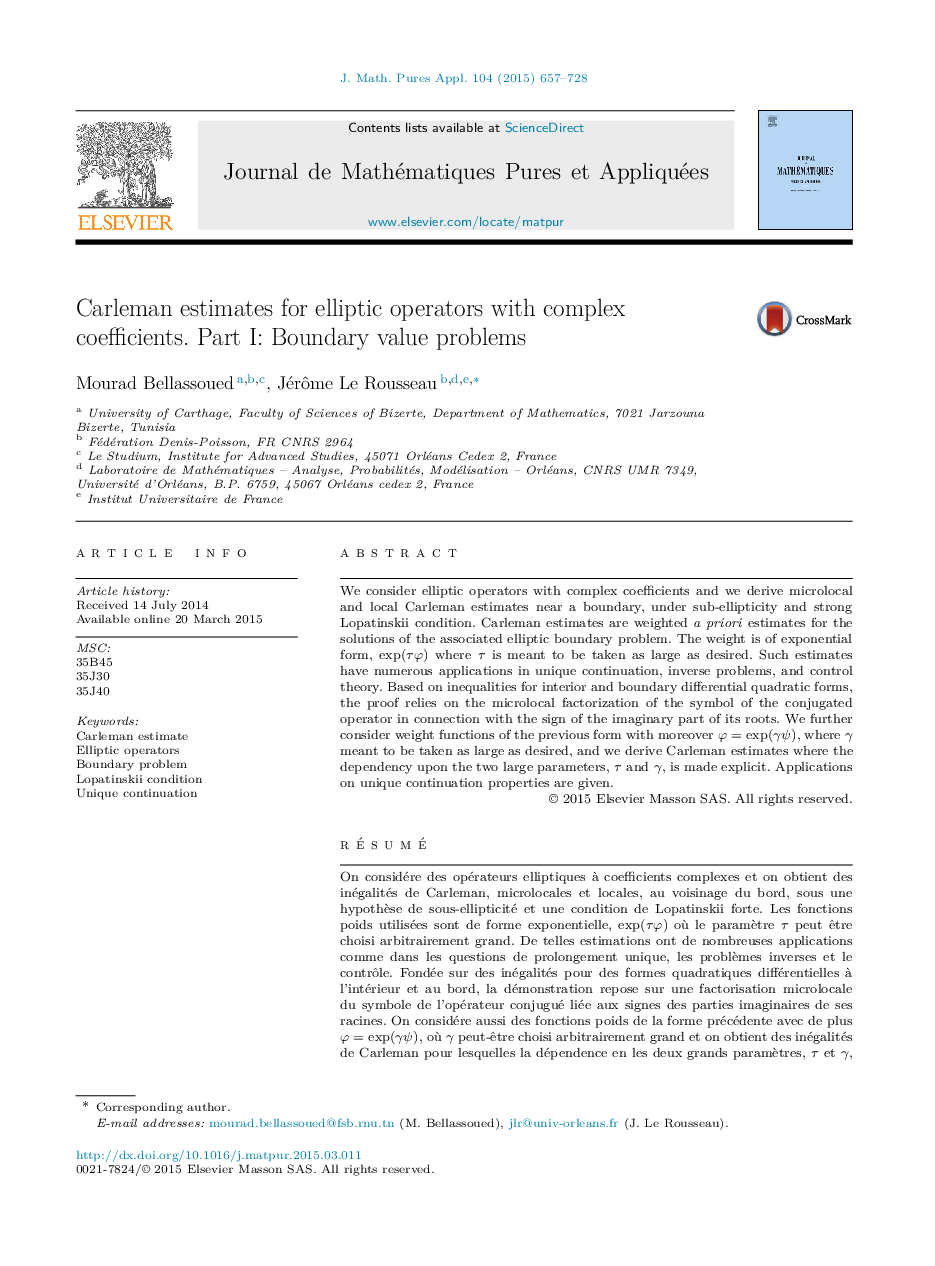| Article ID | Journal | Published Year | Pages | File Type |
|---|---|---|---|---|
| 4643771 | Journal de Mathématiques Pures et Appliquées | 2015 | 72 Pages |
We consider elliptic operators with complex coefficients and we derive microlocal and local Carleman estimates near a boundary, under sub-ellipticity and strong Lopatinskii condition. Carleman estimates are weighted a priori estimates for the solutions of the associated elliptic boundary problem. The weight is of exponential form, exp(τφ)exp(τφ) where τ is meant to be taken as large as desired. Such estimates have numerous applications in unique continuation, inverse problems, and control theory. Based on inequalities for interior and boundary differential quadratic forms, the proof relies on the microlocal factorization of the symbol of the conjugated operator in connection with the sign of the imaginary part of its roots. We further consider weight functions of the previous form with moreover φ=exp(γψ)φ=exp(γψ), where γ meant to be taken as large as desired, and we derive Carleman estimates where the dependency upon the two large parameters, τ and γ, is made explicit. Applications on unique continuation properties are given.
RésuméOn considére des opérateurs elliptiques à coefficients complexes et on obtient des inégalités de Carleman, microlocales et locales, au voisinage du bord, sous une hypothèse de sous-ellipticité et une condition de Lopatinskii forte. Les fonctions poids utilisées sont de forme exponentielle, exp(τφ)exp(τφ) où le paramètre τ peut être choisi arbitrairement grand. De telles estimations ont de nombreuses applications comme dans les questions de prolongement unique, les problèmes inverses et le contrôle. Fondée sur des inégalités pour des formes quadratiques différentielles à l'intérieur et au bord, la démonstration repose sur une factorisation microlocale du symbole de l'opérateur conjugué liée aux signes des parties imaginaires de ses racines. On considére aussi des fonctions poids de la forme précédente avec de plus φ=exp(γψ)φ=exp(γψ), où γ peut-être choisi arbitrairement grand et on obtient des inégalités de Carleman pour lesquelles la dépendence en les deux grands paramètres, τ et γ, est rendue explicite. Des applications aux questions de prolongement unique sont proposées.
